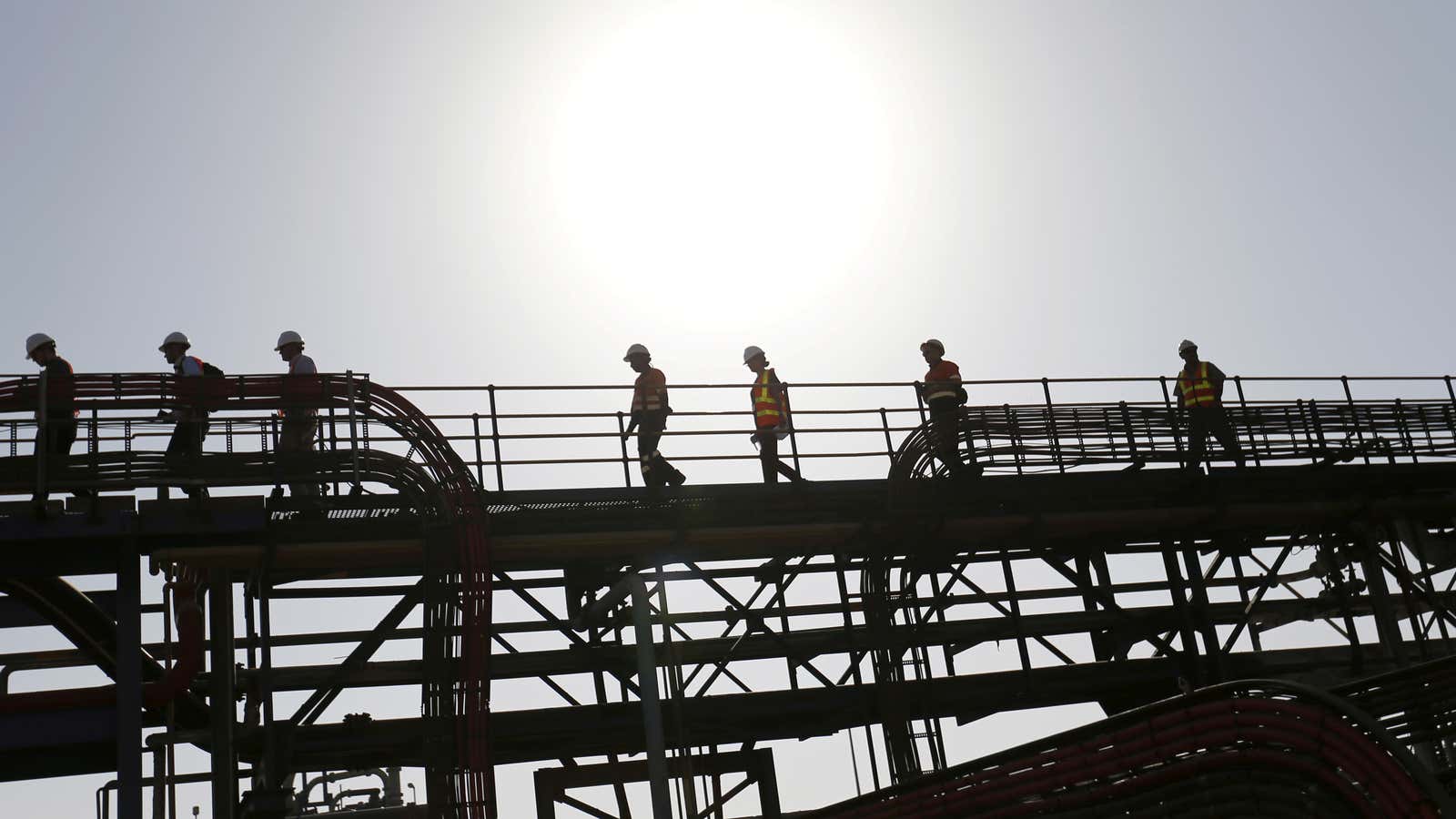A Canadian mining company is being sued for compensation by Eritreans claiming they worked for it while serving in the country’s conscription program.
The workers are suing the Vancouver-based Nevsun Resources in a Canadian court for undergoing “severe physical and mental pain and suffering” while working at Bisha, the country’s first modern mine. The Eritreans say that between 2008 and 2012, they were forced to work in harsh conditions, with little pay, shortage of food and risk of imprisonment.
Nevsun, however, denies these allegations, saying the government didn’t provide any labor to the mine, according to legal filings reported by a new Reuters investigation. Nevsun owns 60% of the Bisha Mining Share Company, while the government owns the other 40%. At Eritrea’s insistence, Nevsun at the time hired Segen, a government-controlled construction firm as a local contractor. Nevsun says it was Segen that was responsible for hiring workers and for carrying out construction work at the mine.
The case draws attention to the difficulties of dealing with the one-party state that president Isaias Afwerki has overseen since he became president in 1993. The lawsuit against Nevsun also exposes the difficult choices facing those enlisted in the country’s notorious national conscription service. The program was established in 1995 and required adults to undertake it for an 18-month period. Yet human rights organizations have criticized the program for drafting citizens for an indefinite period, and for contributing to the wave of refugees fleeing the country. According to the UN refugee agency, Eritrea is one of the top ten refugee-contributing nations in the world.
The growth of the mining industry and the provision of gold has attracted foreign exploration firms to the country. But as these firms seek to reap the benefits and inject money into one of the least developed economies in the world, companies also risk exposing themselves to human rights problems. A 2013 Human Rights Watch report noted that Nevsun failed to put “due diligence” human rights safeguards in place.
Workers have described poor working conditions, with small quantities of food available, and sleeping on the floor with no mosquito nets. Abadi Gebremeskel Alemayo, a Segen manager, said that he knew some of the workers at the mine were conscripts. In a filed affidavit, he described the collapse and eventual death of one of the conscripted workers called Berhane.
“In his report, the doctor said it was heat stroke. I buried him myself—I took his body to his village and buried it,” Alemayo said.
